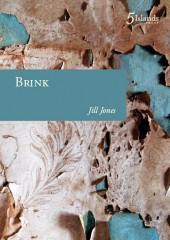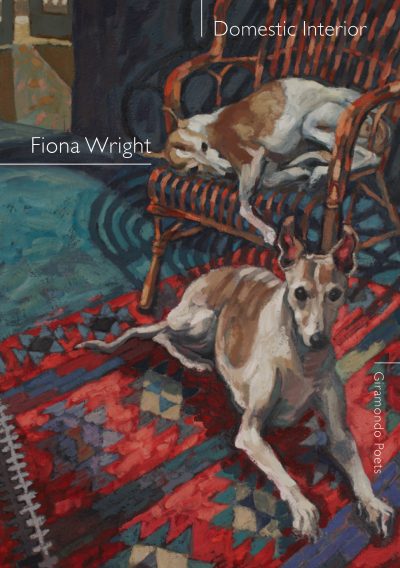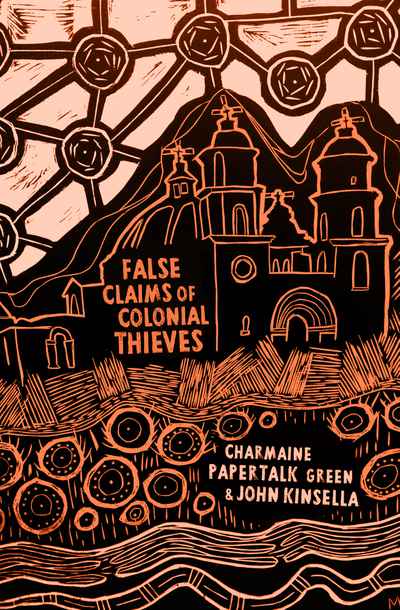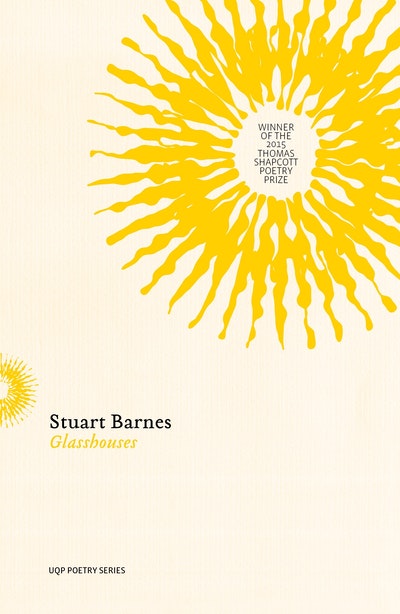 These are poems that pivot on a moment: a chance meeting, a sudden change in situation, or a close observation that takes something commonplace such as an afternoon on the back verandah watching fireworks, driving a vehicle, or reading the news and moves in so close it becomes abstract: a synecdoche for something else. In a way that’s Proustian, the imagery gives rise to a memory, or a perception which is emotive and powerful, revealing something subtle about the world.
These are poems that pivot on a moment: a chance meeting, a sudden change in situation, or a close observation that takes something commonplace such as an afternoon on the back verandah watching fireworks, driving a vehicle, or reading the news and moves in so close it becomes abstract: a synecdoche for something else. In a way that’s Proustian, the imagery gives rise to a memory, or a perception which is emotive and powerful, revealing something subtle about the world.
Tag: Australian poetry
A review of Beatific Toast by Anna Forsyth

A review of Brink by Jill Jones
 The poems take us to the brink of who we are in many aspects: animal, alien, destroyers, inhabitants, lovers, indivudals and collectives. These are poems that make no concessions to humanity’s frailties. We’re about to reap what we’ve sown and all of these exquisite conceits may be illusions against time’s inevitable collapse: “but all these vapours will be unmade” (“The Woodland Chapel”), and yet there is something audaciously beautiful, subversive and permanent in the moment of our experience, in the placement and play of language and in the almost languid sensuality of touch.
The poems take us to the brink of who we are in many aspects: animal, alien, destroyers, inhabitants, lovers, indivudals and collectives. These are poems that make no concessions to humanity’s frailties. We’re about to reap what we’ve sown and all of these exquisite conceits may be illusions against time’s inevitable collapse: “but all these vapours will be unmade” (“The Woodland Chapel”), and yet there is something audaciously beautiful, subversive and permanent in the moment of our experience, in the placement and play of language and in the almost languid sensuality of touch.
A review of Green Point Bearings by Kathryn Fry
 Though the poems in Green Point Bearings are grounded in the natural world and are rooted in place, particularly Lake Macquarie, the Hunter and Northern Sydney, there is also something a bit magical in these poems. There is a mystery in this natural world that is inexplicable, arising from the spaces in which the poems are contained, in the rock, the trees, the flowers and shrubs that are everywhere and still precious, always in motion and changing: “Everything here speaks of infinity”.
Though the poems in Green Point Bearings are grounded in the natural world and are rooted in place, particularly Lake Macquarie, the Hunter and Northern Sydney, there is also something a bit magical in these poems. There is a mystery in this natural world that is inexplicable, arising from the spaces in which the poems are contained, in the rock, the trees, the flowers and shrubs that are everywhere and still precious, always in motion and changing: “Everything here speaks of infinity”.
A review of Domestic Interior by Fiona Wright
 The observations are visceral, coming from within a strong sense of the body. Thinness and its relationship to illness is a continual theme, though very different to the analytical approach of Small Acts of Disappearance. In Domestic Interior the perceptions are simultaneously more delicate and more intense, drawing the reader directly into the deepest heart of pain. The body and its relationship to food informs nearly every perception.
The observations are visceral, coming from within a strong sense of the body. Thinness and its relationship to illness is a continual theme, though very different to the analytical approach of Small Acts of Disappearance. In Domestic Interior the perceptions are simultaneously more delicate and more intense, drawing the reader directly into the deepest heart of pain. The body and its relationship to food informs nearly every perception.
A review of False Claims of Colonial Thieves by Charmaine Papertalk Green and John Kinsella
 Though the poems stand alone and many have been published in literary journals that way, it’s the dialogue itself where the most important meaning happens. Both poets take on similar subjects of dispossession, occupation, the landscape and ecology, exploitation and historical revisionism. Both poets ultimately situate the work as a search for an identity born out of pain, guilt and suffering, and both respond through the others work to create connection and reconciliation.
Though the poems stand alone and many have been published in literary journals that way, it’s the dialogue itself where the most important meaning happens. Both poets take on similar subjects of dispossession, occupation, the landscape and ecology, exploitation and historical revisionism. Both poets ultimately situate the work as a search for an identity born out of pain, guilt and suffering, and both respond through the others work to create connection and reconciliation.
A review of Glasshouses by Stuart Barnes
 The work resists an easy correspondence. You can’t “translate” it to a simple message or meaning. Instead the poems move between landscapes that feel like they should be familiar, with the unsettling quality of dreams or memory – slightly distorted and nightmarish, but also enticing.
The work resists an easy correspondence. You can’t “translate” it to a simple message or meaning. Instead the poems move between landscapes that feel like they should be familiar, with the unsettling quality of dreams or memory – slightly distorted and nightmarish, but also enticing.
A review of Appalachian Fall by Jennifer Maiden
 Anyone who thinks of poetry as a hermetic art form has not read Jennifer Maiden. A keen and articulate observer of current affairs and trends, Maiden’s work explores a political and sociological landscape through the lens of poetic vision. This analysis takes many forms, often in multi-genred pieces that transcend essay, fiction, biography and poetry. In spite of the mixed literary forms, there is a consistency in characters, themes, and in approaches across Maiden’s oeuvre that makes for an accumulative effect.
Anyone who thinks of poetry as a hermetic art form has not read Jennifer Maiden. A keen and articulate observer of current affairs and trends, Maiden’s work explores a political and sociological landscape through the lens of poetic vision. This analysis takes many forms, often in multi-genred pieces that transcend essay, fiction, biography and poetry. In spite of the mixed literary forms, there is a consistency in characters, themes, and in approaches across Maiden’s oeuvre that makes for an accumulative effect.
A review of These Wild Houses by Omar Sakr
 It’s hard to think of Sakr as an emerging voice – his work seems to have been everywhere over the past few years. The work in These Wild Houses has such a strong sense of assurance. This is an impressive and very moving collection that not only explores the important terrains of both everyday and institutional racism, the migrant experience, identity politics, trauma and grief, but that also presents a deeply personal and moving story that very deliberately draws the reader in and invites collusion and connection.
It’s hard to think of Sakr as an emerging voice – his work seems to have been everywhere over the past few years. The work in These Wild Houses has such a strong sense of assurance. This is an impressive and very moving collection that not only explores the important terrains of both everyday and institutional racism, the migrant experience, identity politics, trauma and grief, but that also presents a deeply personal and moving story that very deliberately draws the reader in and invites collusion and connection.
A review of Goodbye, Cruel by Melinda Smith
 Signs speak, horror rises through the floorboards, Hedge-Triffids surround the houses, and children poke sticks at dead possums. There is everywhere a clash between life and death; decay and renewal. Though Goodbye, Cruel explores painful places in a way that cuts deeply, ultimately the work is affirmative, moving back and forth into the particular and outwards into the universal. Smith does an exceptional job of bridging the gap between the absurd, the tragic and the domestic, turning it all into something tender and sublime.
Signs speak, horror rises through the floorboards, Hedge-Triffids surround the houses, and children poke sticks at dead possums. There is everywhere a clash between life and death; decay and renewal. Though Goodbye, Cruel explores painful places in a way that cuts deeply, ultimately the work is affirmative, moving back and forth into the particular and outwards into the universal. Smith does an exceptional job of bridging the gap between the absurd, the tragic and the domestic, turning it all into something tender and sublime.